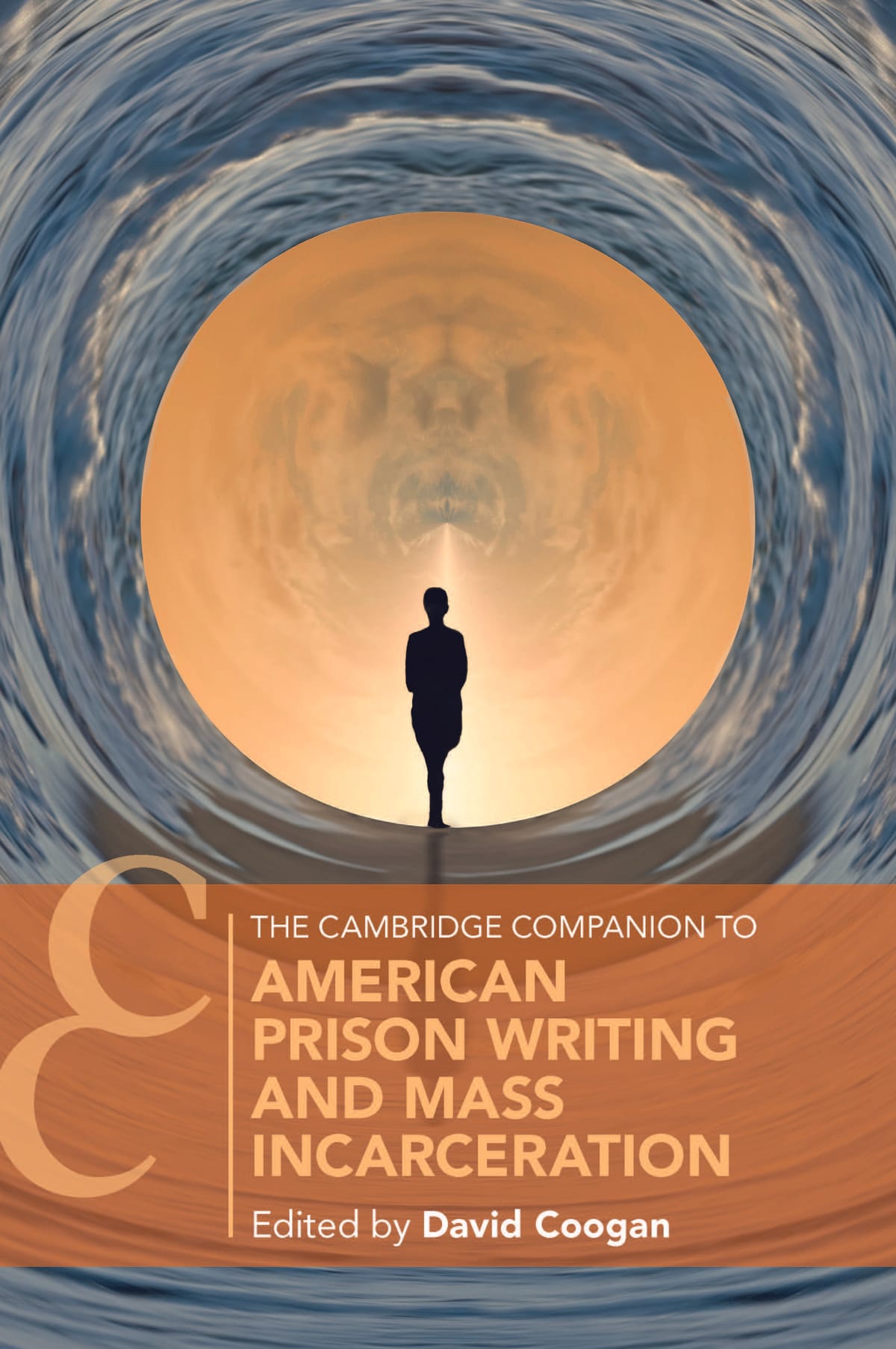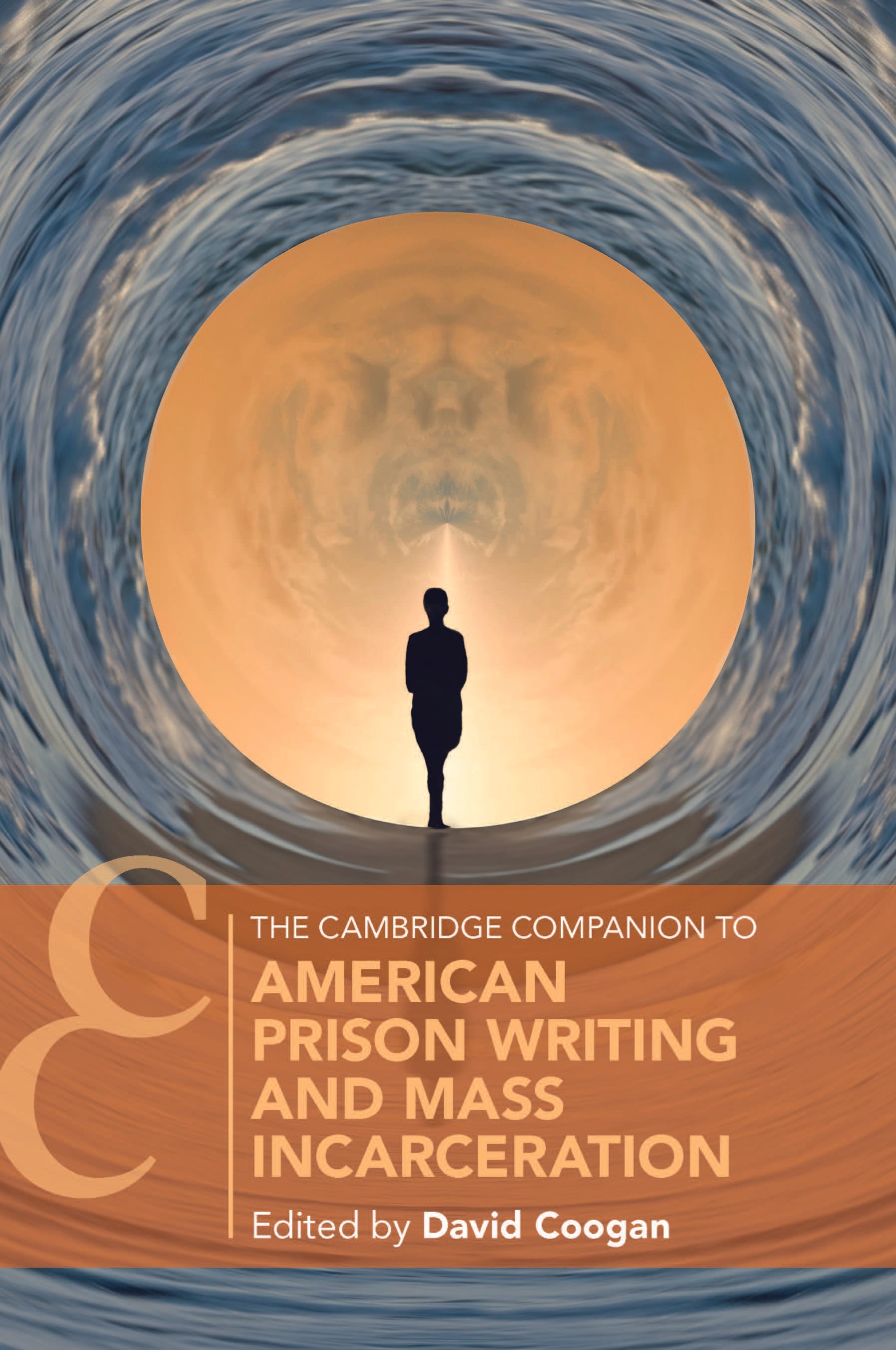prisoners "who write to determine their own fates and secure justice"
"If you read this book, you’ll see the growth of the prison industrial complex. But you’ll also see the strength and creativity of people writing through it, beyond it, toward freedom."

Today's author's pitch comes from David Coogan, an associate professor of English at Virginia Commonwealth University specializing in rhetoric, the teaching of writing, and prison literature. He is the author of Writing Our Way Out: Memoirs from Jail, and The Public Work of Rhetoric: Citizen-Scholars and Civic Engagement. Professor Coogan is editor of The Cambridge Companion to American Prison Writing and Mass Incarceration, published this month by Cambridge University Press.
When you hear the phrase, mass incarceration, you tend to think of the jails and prisons containing millions. Or the politics and policies that led to that tragedy. It’s harder to imagine the people. I think it’s in the syntax of the phrase. In physics, mass refers to the total amount of matter in an object. The grains of sand in a glass. The amount of water in that glass. A drop of water or grain of sand does not matter. It’s the total mass that matters. So too with mass incarceration. Individuals become a part of the adjective modifying a noun. But unlike other mass experiences where we choose to be just a face in the crowd—a concert, a political rally—no one chooses mass incarceration. Anonymity only explains captivity. To write in prison is to break rank with the masses, to shape your fate like this guy on the cover parting the waters of incarceration, holding them in abeyance as he makes his way to freedom.
I first learned what it meant to make that break toward freedom when I began teaching memoir writing at the Richmond City Jail. That class led to a book, Writing Our Way Out: Memoirs from Jail, which tells my story of teaching people how to write their life stories, while featuring their life stories: from their earliest memories into the problems that led them into the system, as well as their vision for how to change the narrative. It was the first time I had ever been in a jail face to face with people who knew the system all too well. To better understand where I was and who I was teaching, I began reading the literature of incarcerated people. Years later, I looked up and realized I had told myself a story of mass incarceration as seen through the eyes of the writers who survived it.
The Cambridge Companion to American Prison Writing and Mass Incarceration is filled with those stories. Revolutionary writers like George Jackson, Assata Shakur, and Mumia Abu-Jamal, who seek liberation not just from prison but also from the oppressive structure of society that sustains it. Witnesses like Wilbert Rideau, Jack Henry Abbott, and Jimmy Santiago Baca who write to determine their own fates and secure justice in these cavernous prison warehouses. And survivors like Shaka Senghor, Jarvis Masters, and Susan Burton who write to heal from the psychological trauma that led to prison as well as the trauma of prison.
This is not the way the story of mass incarceration is usually told– to show how we became the world’s largest jailer. The writers featured in this book resisted the facts of their captivity. They pushed back on the narrative pushing them into anonymity. This book brings their stories together into a larger history of perseverance and resistance to mass incarceration that they could not tell alone. Their stories are elaborated here by an amazing group of scholars, writers, and activists, some of whom have been to prison and one who is still there. If you read this book, you’ll see the growth of the prison industrial complex. But you’ll also see the strength and creativity of people writing through it, beyond it, toward freedom.
The Cambridge Companion to American Prison Writing and Mass Incarceration
coupon code to save 20%: CCAPW2025
Carceral History is an always free newsletter provided as a professional service by a longtime subscriber to Contingent Magazine.
Be sure to submit publications to Contingent's annual Publications by Non-Tenure-Track Historians list by November 29!

